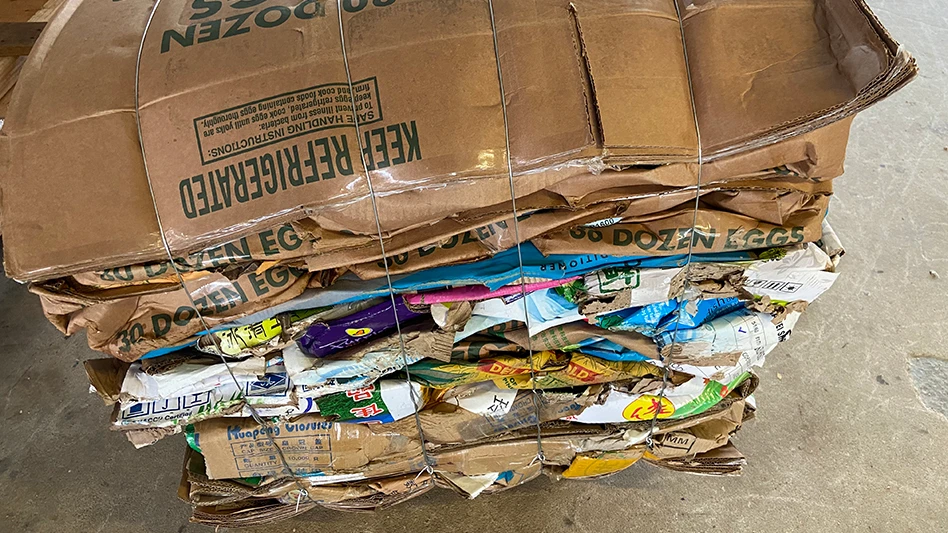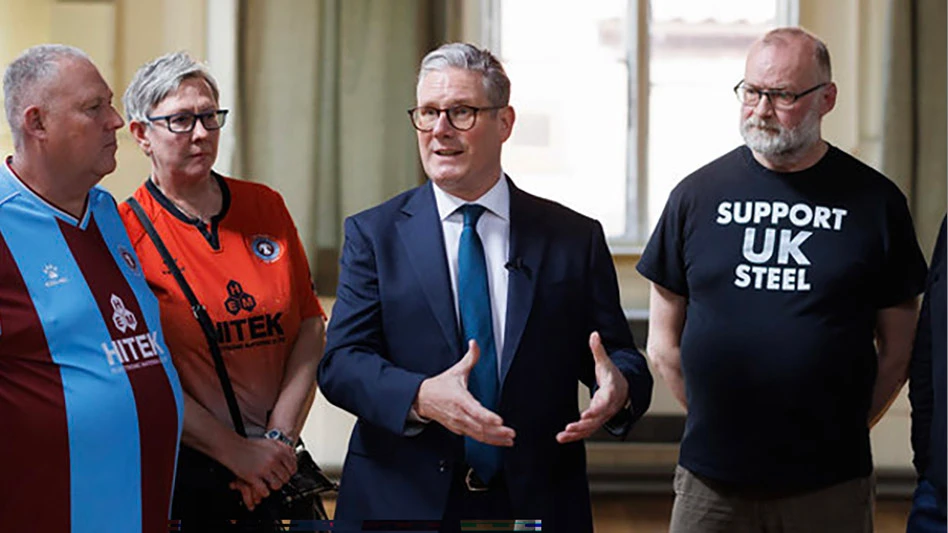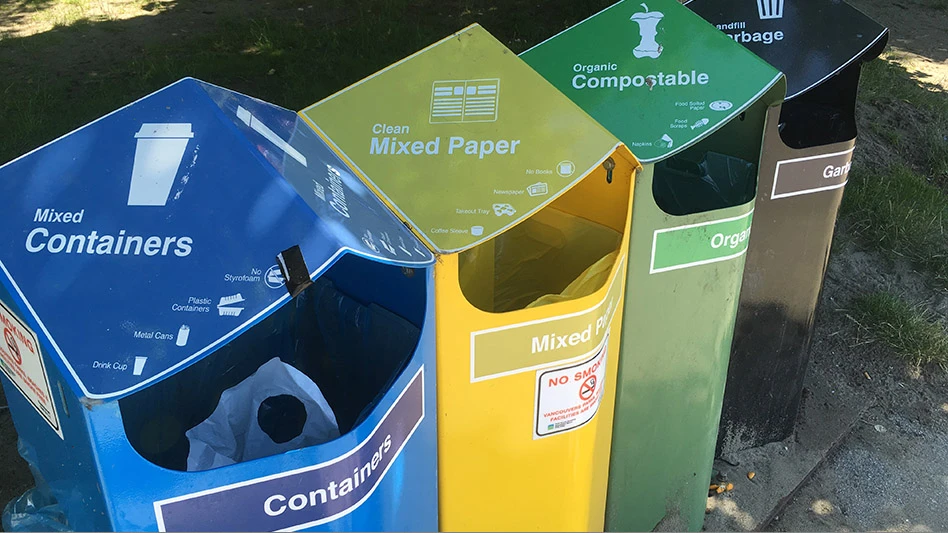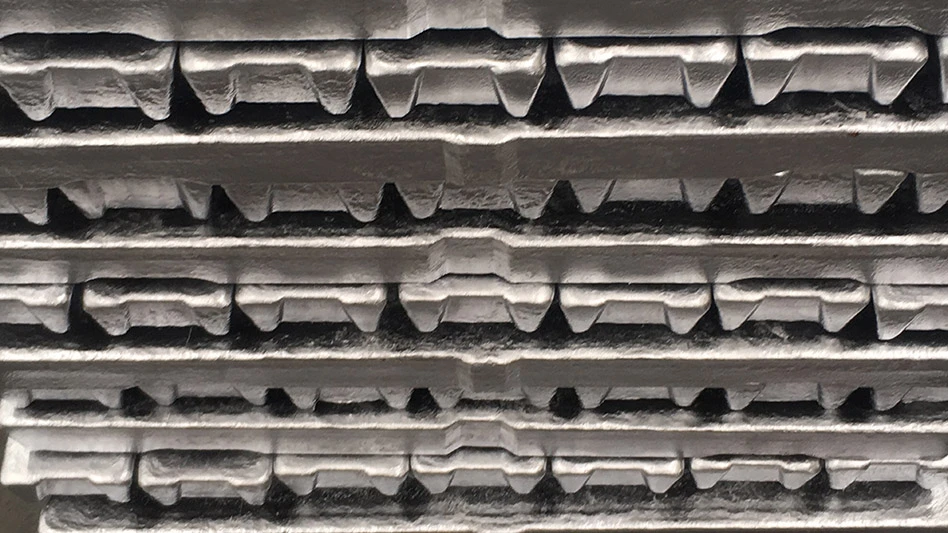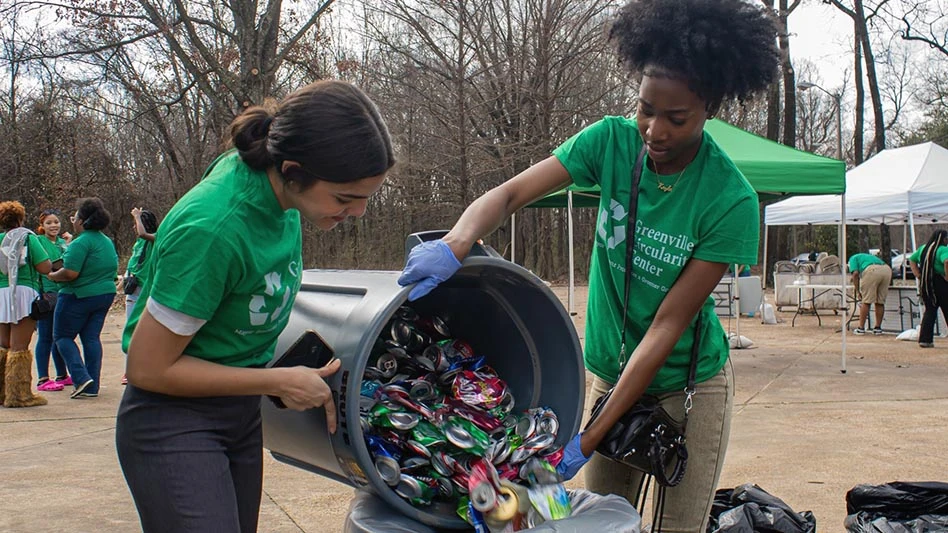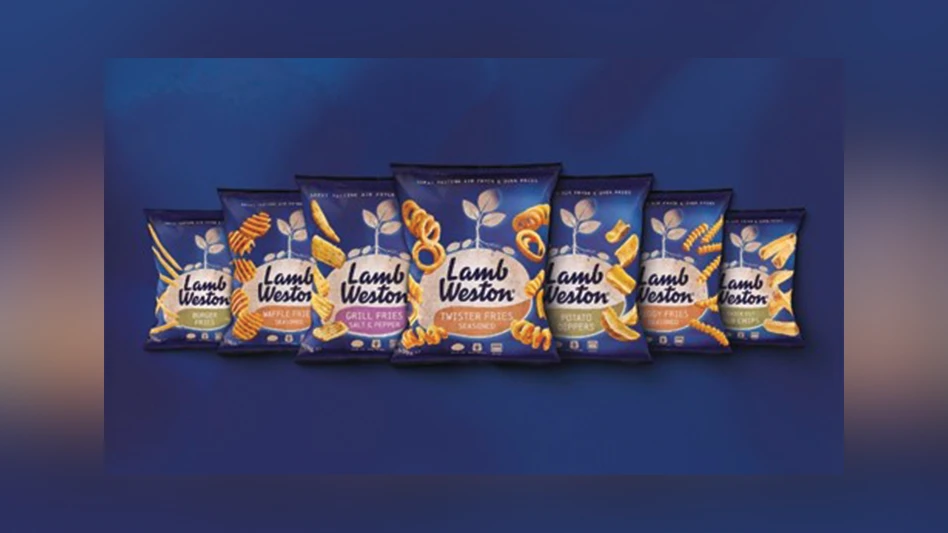
Image courtesy of SABIC
Chemicals company SABIC recently partnered with frozen potato product producer Lamb Weston and packaging developer Opackgroup to create low-weight sustainable packaging bags made with a thin coextrusion film structure for Lamb Weston’s frozen products.
According to Riyadh, Saudi Arabia-based SABIC, at least 60 percent of the packaging is made with polymers using biofeedstock from used cooking oil (UCO).
The process starts with the collection of UCO from Eagle, Idaho-based Lamb Weston’s production, which then is converted to biofeedstock to produce certified biorenewable SABIC HDPE (high-density polyethylene) and SUPEER mLLDPE (metallocene linear low-density polyethylene) polymers. The final packaging contains at least 60 percent UCO-based biorenewable polymer material, which is part of SABIC’s Trucircle portfolio.
RELATED: Forging a breakthrough
Oerlemans Plastics, a member of Netherlands-based Opackgroup, a specialized manufacturer of flexible films and packaging, converts these polymers to a multilayer polyethylene (PE) film for Lamb Weston’s prefried frozen potato products.
“Distributors, retailers and consumers have become increasingly conscious of their environmental impact and show a growing preference for more sustainable packaging,” says Sebastiaan Besems, vice president commercial EMEA at Lamb Weston. “We have anticipated this trend and developed an industry-leading biocircular retail packaging solution for our prefried frozen potato products that provides a highly responsible value proposition.
“As part of our ambitious sustainability plans and innovations for the frozen potato category, the brand’s new European retail pack is made with 60 percent biocircular plastic originating from Lamb Weston’s used cooking oil and is ISCC Plus certified. By using SABIC’s biorenewable polymer, less and better packaging, this innovation reduces the carbon footprint of our retail bags by 30 percent, aligning with consumer expectations that FMGC brands are as environmentally friendly as possible. The success of this project also meets with our goals to halve our food waste, cut our overall product carbon footprint by 25 percent and move to more circular production by 2030.”
SABIC says the combination of 20 percent reduced film thickness—the resulting bags have an average unit weight of 10 grams—and the use of biorenewable SABIC PE enables an approximately 30 percent lower carbon footprint than the previous bags for this application. SABIC says its HDPE resin in the film structure delivers high strength and flexibility, while its SUPEER mLLDPE resin lends “excellent bag sealing.”
The company notes that both materials comply with the requirements of the European Food Safety Authority (EFSA) and the U.S. Food & Drug Administration (FDA) for food contact.
Following testing and evaluation, the first frozen potato products packed in bags made with Oerlemans Plastics’ multilayer film using certified SABIC PE polymers were launched by Lamb Weston in the United Kingdom and the Netherlands in September.
“The project solidifies the committed efforts we have undertaken with SABIC to promote low-carbon and renewable products within our industry and represents a significant advancement,” says Laura Hanegraaf, sales manager at Oerlemans Plastics. “It allows us to offer our customers high-quality flexible film products made with renewable material from used cooking oil.”
Latest from Recycling Today
- Steel Dynamics nets $217 million on record shipments
- Massive Chinese steelmaking rebound recorded in March
- LME looks into sustainable metal pricing
- OnePlanet Solar Recycling closes $7M seed financing round
- AMCS launches AMCS Platform Spring 2025 update
- Cyclic Materials to build rare earth recycling facility in Mesa, Arizona
- Ecobat’s Seculene product earns recognition for flame-retardant properties
- IWS’ newest MRF is part of its broader strategy to modernize waste management infrastructure
